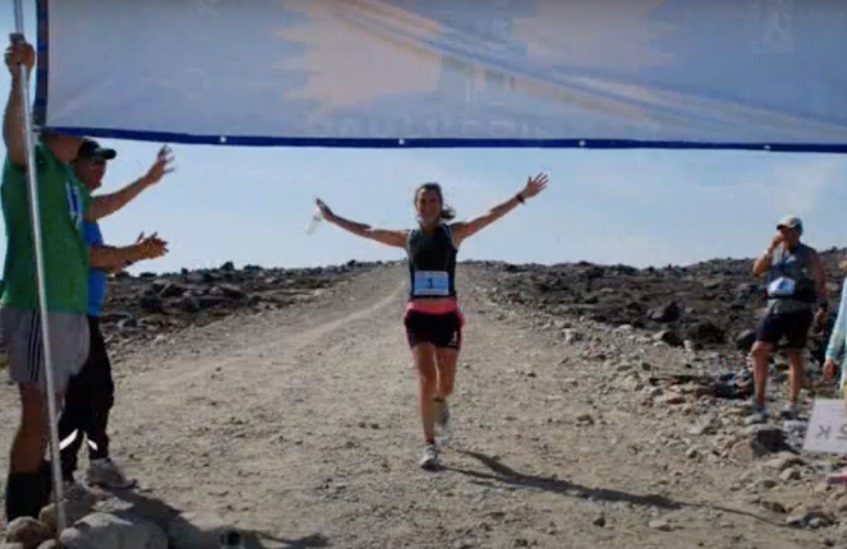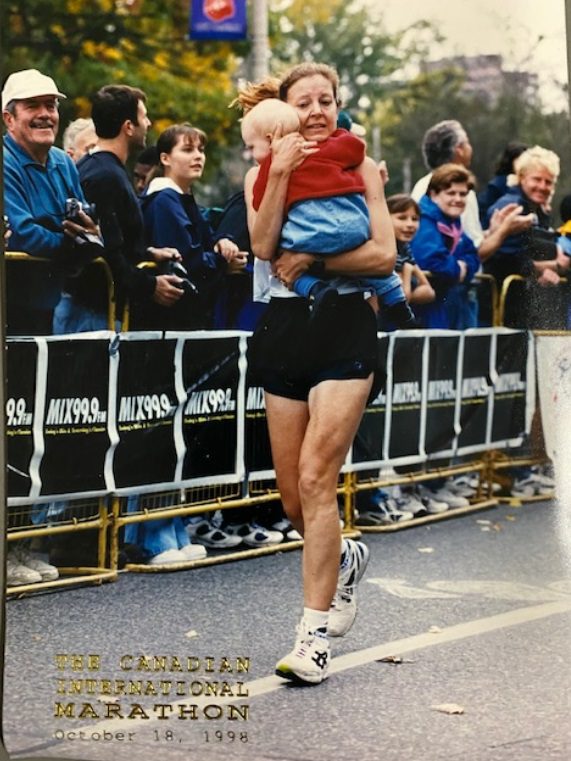How running changed one woman’s life
When her life took a turn for the worse, the avid runner gave up on the sport completely. It wasn't until she laced up her shoes again that Fiona Savage got her life back

The physical, emotional and mental health benefits of running are well documented, and yet for many of us, when life gets hard it can sometimes be one of the things we let go of. It isn’t until we decide to make it a part of our life again that we fully appreciate the good it can do for us. There is no one who understands the life-changing impact of running better than Fiona Savage. She gave up on the sport during a particularly dark time in her life, but it was her decision to get back out there that brought her back from the brink. Today, she’s telling her story to serve as an example of how running can influence your life for good, and to encourage others who’ve fallen on hard times to not give it up.

RELATED: Stroke survivor: ‘running saved my life’
Savage began running in 1973 when she was just 13 years old. She had moved to Canada from the U.K. when she was five, and was an only child to a verbally-abusive mother. She was introverted and a bit of an outcast, so running became like a friend — something she could do on her own. She continued running, competing in both cross country and sprinting in high school. In 1981 Savage ran her first 10K at the age of 21, and eight years later she ran her first marathon. It took her until 1995 to reach her goal of qualifying for the Boston Marathon, which she did in a time of 3:33.
Her daughter, Morag, was born in 1997, and Savage continued to run, pushing her baby in a stroller. She went to the Arctic twice to run a marathon — once in 2006 and again in 2008 — and ran a 90K ultramarathon in 2009.
In 2012, she stopped running. Looking back on it, Savage says, she was suffering from PTSD from the verbal abuse she suffered as a child. She also found herself in a string of abusive relationships during this time, plunging her further into an emotional and mental crisis.

“I was drinking too much, I was eating poorly, I was bringing my daughter up on my own,” explained Savage. “There was a lot of time in there where I was absolutely lost. I don’t even know who that person was.”
The stress of it all culminated in a panic attack that made her think she was dying. Things didn’t start to get better until 2018, when her daughter began doing spin classes. After some convincing, she agreed to do a class with her. That first class was, in Savage’s words, humbling. As someone who used to run marathons, this spin class put her nearly on the floor. Despite this, she kept going, and she and Morag began running together a couple of times a week. In 2019, Savage made the decision to quit drinking.
RELATED: What does alcohol actually do to a runner’s body?
“There’s a lot of women who are in my boat,” she says. “You are lonely, you are on your own and one or two glasses of wine goes to three, and you do it because you are lost — I was lost.”
From there, Savage began weight training and increased her running. The now 60-year-old and her best friend Cathy, who has been running and doing Ironmans and marathons for 30 years, are planning on doing a 100-mile run along the Simcoe Rail Trail together this June. Savage herself credits her daughter with inspiring her to get back out there, and when you ask her how running has changed her life, she’s almost at a loss for words.
“I’m peaceful now,” she says after some thought. “I have back that confidence that I didn’t know I’d lost.”
Every time she goes for a run, Savage is thankful that she can run. Having been lost for so long, running has helped her find herself again, and she never takes that for granted. Running has given her back her health and has given her the opportunity to look at life with a perspective that she didn’t have before. Now, she wants to encourage others to help themselves, particularly during these difficult times.
“Right now it’s very stressful for individuals, and if there’s some way that you can help yourself, I’ve found the way to do it.”

If you find yourself in a similar situation to hers, Savage has some advice for you. First, she says to find someone you trust when you feel overwhelmed. For her, that person was her daughter, but she says a professional is a great option if you don’t have a friend or family member who can fill that role. Second, and perhaps most importantly, she says to start small. If running is too much, walk. If working out every day is overwhelming, start with two or three days a week. You can tackle a run one telephone pole at a time, and it’s the same with other things in life – just take things one at a time.
“We hear a lot about abusive patterns repeating themselves, and I allowed that for a time,” says Savage, “but every morning is another opportunity to make a change and to have a better life.”


